Top 7 Health Benefits of Jicama
Jicama is a globe-shaped root vegetable with a starchy white inside and a papery, golden-brown exterior. It is the root of a plant that yields lima bean-like ... read more...beans. Its flesh is juicy and crisp, and it tastes nutty and somewhat sweet. Some people compare the flavor to a cross between a pear and a potato, and some like it to a water chestnut. The best jicama health and nutrition advantages are listed below.
-
A jicama's nutritional profile is outstanding. Carbs make up the majority of its calories. Very little amounts of protein and fat make up the remaining calories. Jicama has a substantial quantity of fiber and is packed with several essential vitamins and minerals. Actually, one cup's (130 grams) nutritional content is as follows:
- Calories: 49
- Carbs: 12 grams
- Protein: 1 gram
- Fat: 0.1 gram
- Fiber: 6.4 grams
- Vitamin C: 44% of the RDI
- Folate: 4% of the RDI
- Iron: 4% of the RDI
- Magnesium: 4% of the RDI
- Potassium: 6% of the RDI
- Manganese: 4% of the RDI
Jicama also has trace levels of pantothenic acid, calcium, phosphorus, zinc, and copper, as well as modest amounts of vitamin E, thiamine, riboflavin, and vitamin B6. This root vegetable is a good choice for weight loss since it has few calories and is high in fiber and water. Only one cup (130 grams) provides 23% of the RDI for women and 17% of the RDI for men in terms of fiber. The water-soluble vitamin C, which is crucial for many enzyme activities and serves as an antioxidant in your body, is also abundant in jicama.
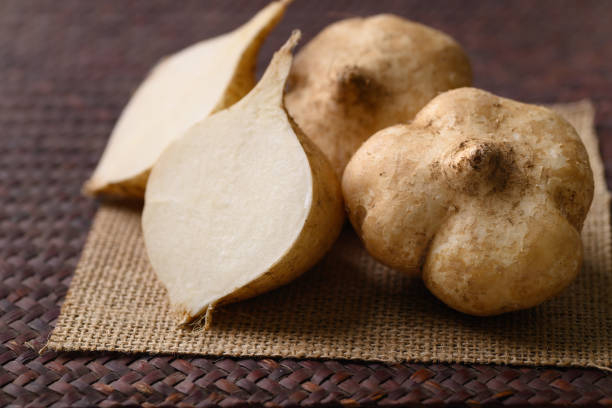
Packed With Nutrients 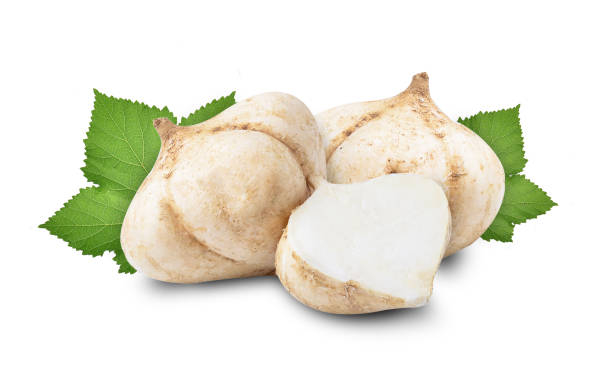
Packed With Nutrients -
Jicama has a number of antioxidants, which are healthy plant substances that reduce the risk of cell deterioration. The RDI for the antioxidant vitamin C is almost half of a cup (130 grams) of jicama. Beta-carotene, selenium, and vitamin E are other antioxidants found in them. By combating free radicals, the damaging chemicals that produce oxidative stress, antioxidants help prevent cell damage.
Chronic disorders including cancer, diabetes, cardiovascular problems, and cognitive decline have all been related to oxidative stress. Fortunately, diets rich in anti-oxidants can help battle oxidative stress and may lower the chance of acquiring chronic illnesses. One such food is jicama. Actually, research has connected the antioxidants in fruits and vegetables to a reduced risk of heart disease, diabetes, obesity, and Alzheimer's.
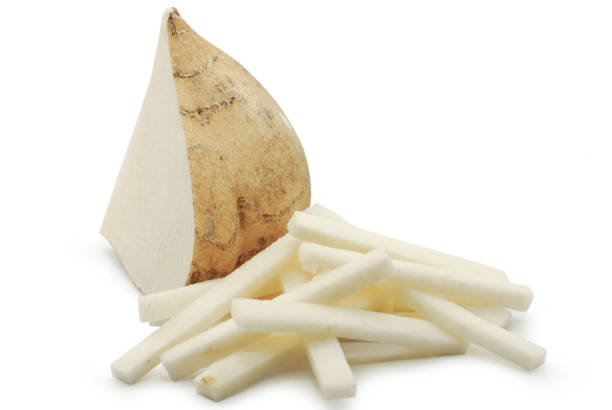
High in Antioxidants 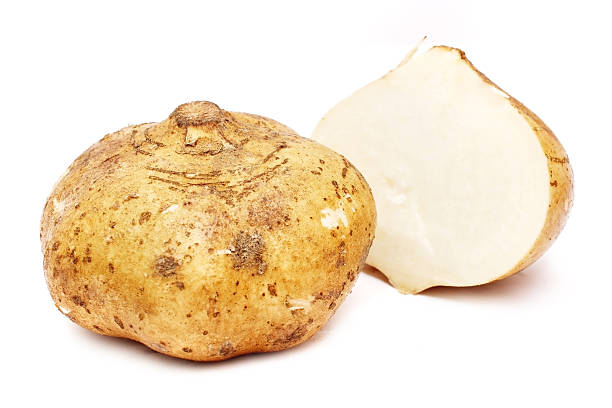
High in Antioxidants -
A jicama is a great option for enhancing heart health since it contains a variety of minerals. It has a high soluble dietary fiber content, which may reduce cholesterol levels by preventing bile from being reabsorbed in the intestines and by reducing the production of new cholesterol by the liver. Increasing fiber consumption significantly reduced total cholesterol and "bad" LDL cholesterol, according to a study of 23 trials.
Jicama also has potassium, which eases blood vessel tension and lowers blood pressure. One research, for instance, found that potassium reduced blood pressure and offered protection from heart disease and stroke. Jicama also includes iron and copper, both of which are essential for producing healthy red blood cells, which may enhance circulation. 0.62 mg of copper and 0.78 mg of iron are both present in one cup. Jicama is a naturally occurring nitrate source. Vegetable nitrate consumption has been associated in studies with greater workout results and improved circulation. Research in healthy persons has also shown that drinking 16.6 ounces (500 mL) of jicama juice decreased the chance of getting blood clots.
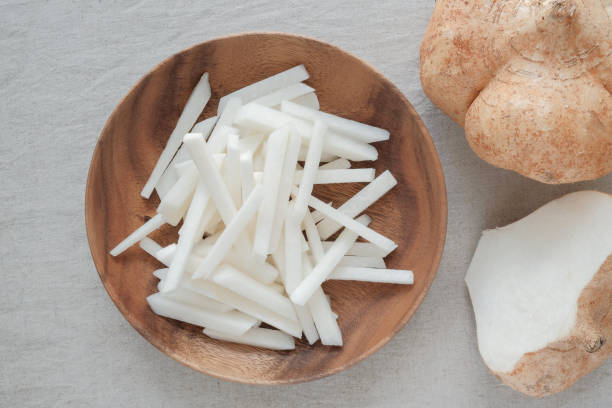
May Boost Heart Health 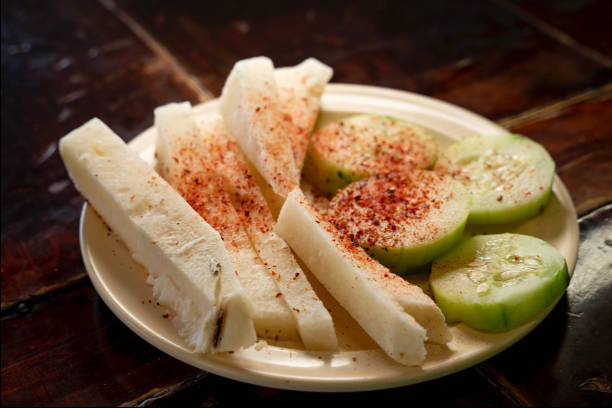
May Boost Heart Health -
Dietary fiber contributes to the stool's increased volume. This facilitates its easier passage through your digestive system. Jicama has 6.4 grams of fiber per cup (130 grams), which might help you reach your daily targets. Jicama also has a kind of fiber known as inulin. According to studies, inulin can help those who are constipated have up to 31% more bowel movements each week.
Jicama has a lot of water, which may aid in relieving constipation. Jicama and other foods with a high water content can help you get the fluids you need each day. Jicama has a lot of water and dietary fiber, which both support regular bowel motions.
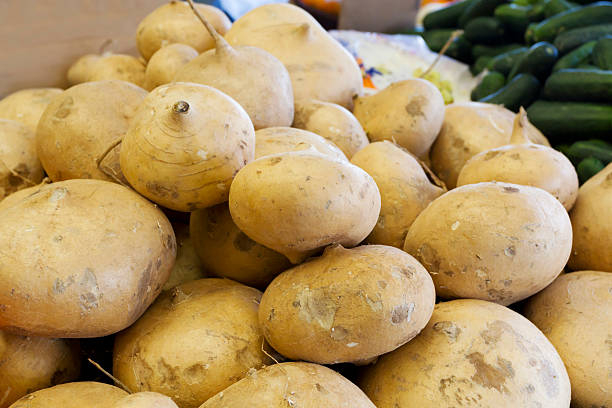
Promotes Digestion 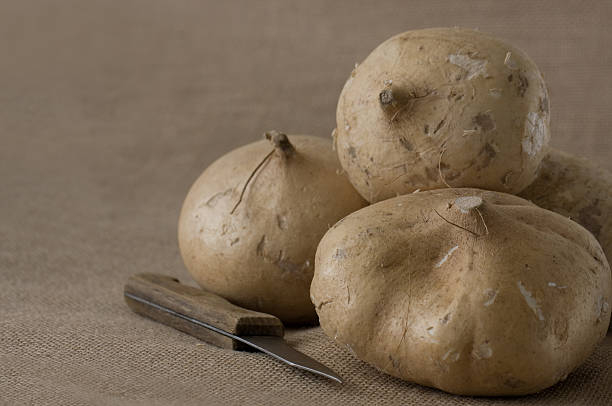
Promotes Digestion -
Jicama contains a lot of inulin, a prebiotic fiber. A prebiotic is a nutrient that your body's microorganisms may utilize to produce positive health effects. Prebiotics like inulin cannot be digested or absorbed by your digestive system, but they can be fermented by the bacteria in your gut. Prebiotic-rich diets enhance the "good" bacteria in your gut flora while reducing the number of harmful bacteria.
According to studies, the kinds of bacteria in your stomach may have an impact on your mood, immune system, and even weight. Consuming prebiotic meals encourages the growth of certain bacteria that may reduce the chance of developing chronic conditions like kidney disease, diabetes, obesity, and heart disease.
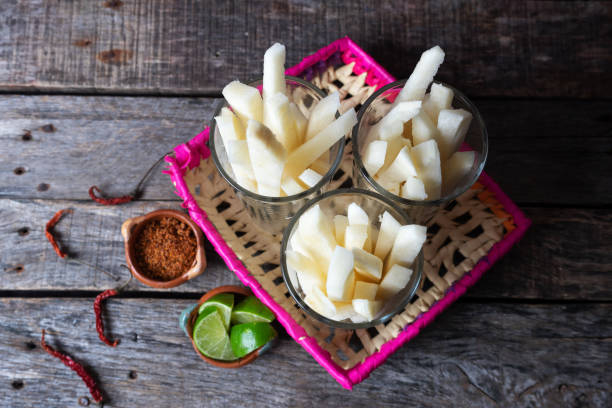
Good for Your Gut Bacteria 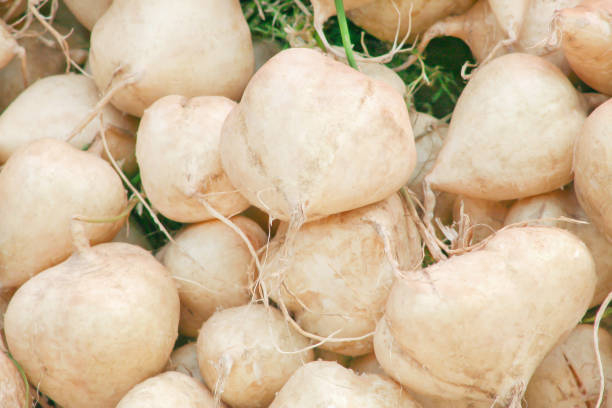
Good for Your Gut Bacteria -
Jicama includes beta-carotene, selenium, and the antioxidant vitamins C and E. The free radicals that might cause cell damage and cancer are neutralized by antioxidants. Jicama is an excellent source of dietary fiber as well. More than 6 grams of fiber are included in a cup (130 grams). The prevention of colon cancer that dietary fiber is widely recognized. According to one study, persons who consume more than 27 grams of dietary fiber each day had a 50% lower risk of colon cancer than those who consume less than 11 grams.
Jicama also has a prebiotic fiber known as inulin. Prebiotics may lower the risk of cancer by strengthening the immune system, increasing the creation of protective short-chain fatty acids, and raising the number of good bacteria in the gut. Consuming inulin fiber may really prevent colon cancer, according to research done on mice. Inulin has been demonstrated to function as an antioxidant that safeguards the gut lining in addition to being a useful sort of fiber.
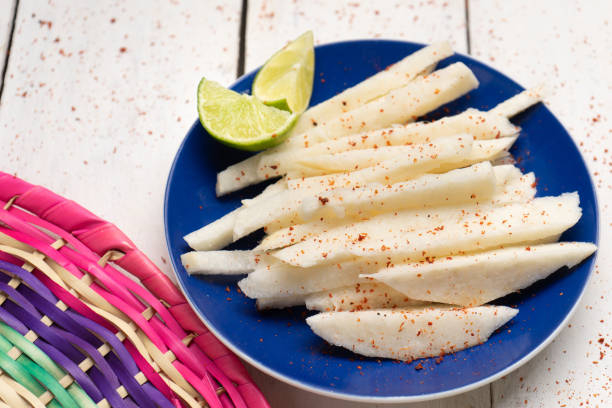
May Reduce the Risk of Cancer 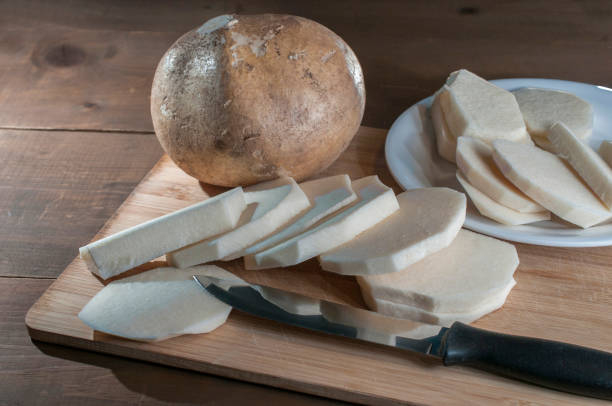
May Reduce the Risk of Cancer -
Foods rich in nutrients include jicama. Although there are few calories in it, it has a lot of nutrients. Jicama has a high water and fiber content that aids in satiation. Jicama's fiber may also aid in maintaining stable blood sugar levels. Because fiber slows digestion, blood sugar levels don't rise as rapidly after meals. Obesity is mostly caused by insulin resistance. Your cells lose their sensitivity to insulin, which makes it more difficult for glucose to enter the cells where it may be utilized as energy.
The glucose, on the other hand, remains in your system and raises your blood sugar levels. Jicama consumption may improve insulin sensitivity and lower blood sugar levels, according to studies done on mice. Jicama also includes inulin, a prebiotic fiber that has been associated with weight reduction and has been demonstrated to influence hormones that control appetite and fullness. As a result, eating jicama may boost the sort of gut bacteria that promote weight reduction while also making you feel fuller after meals.
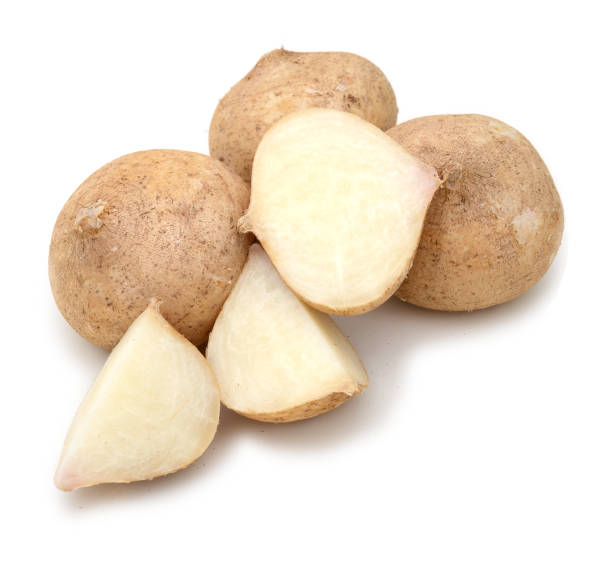
May Aid Weight Loss 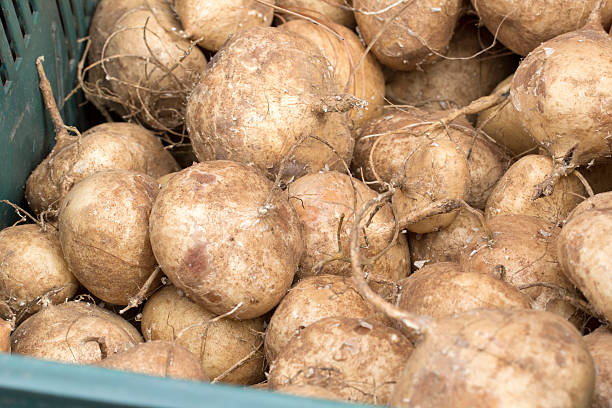
May Aid Weight Loss




























